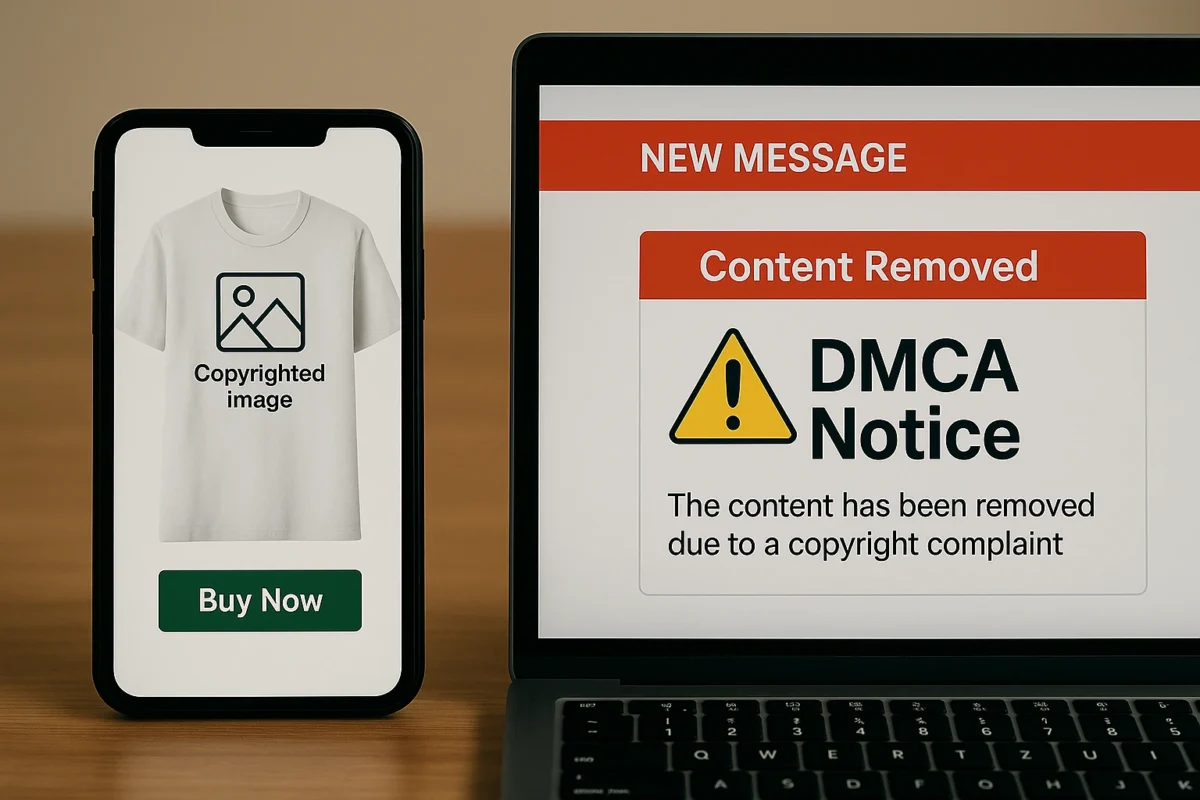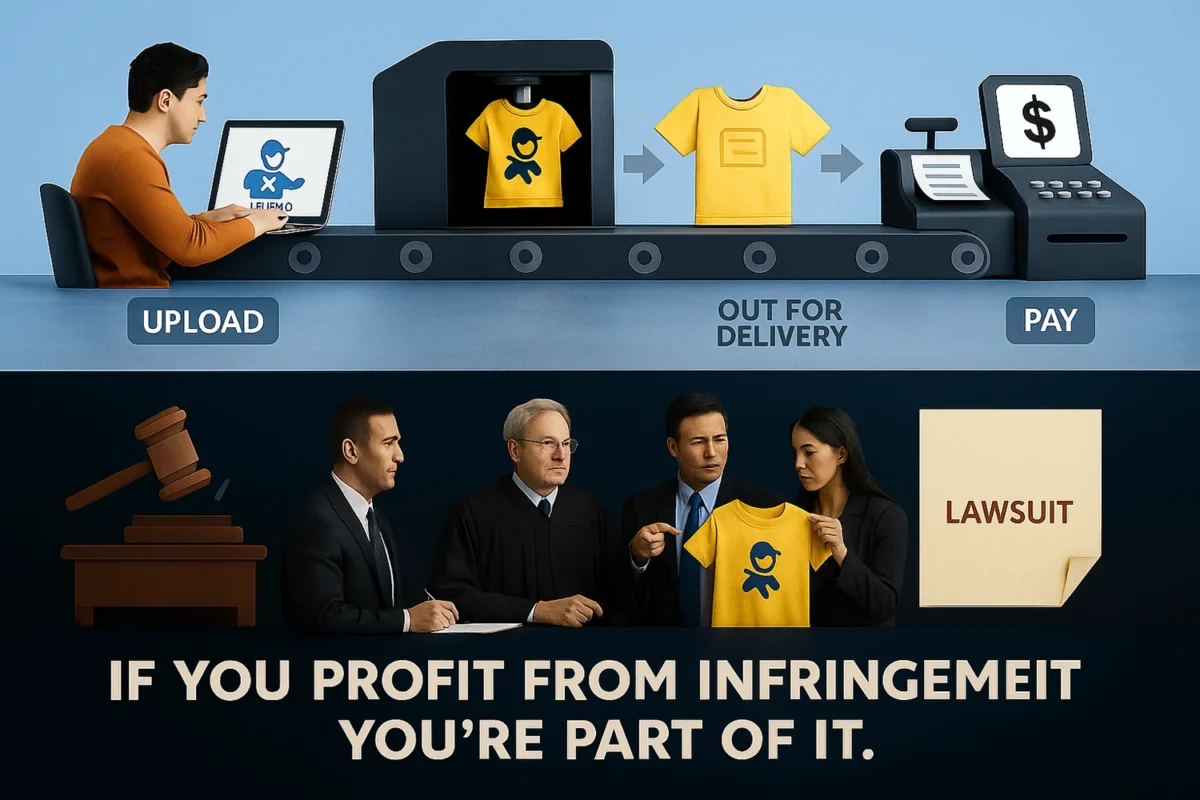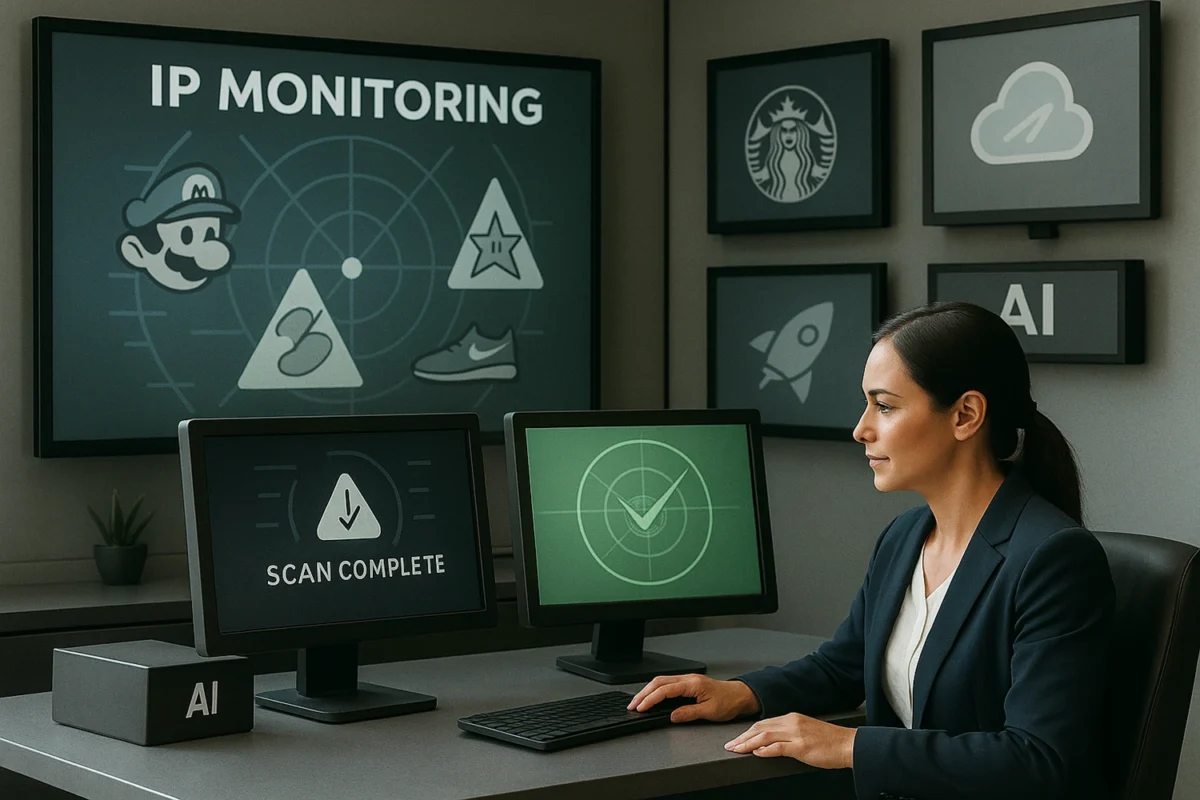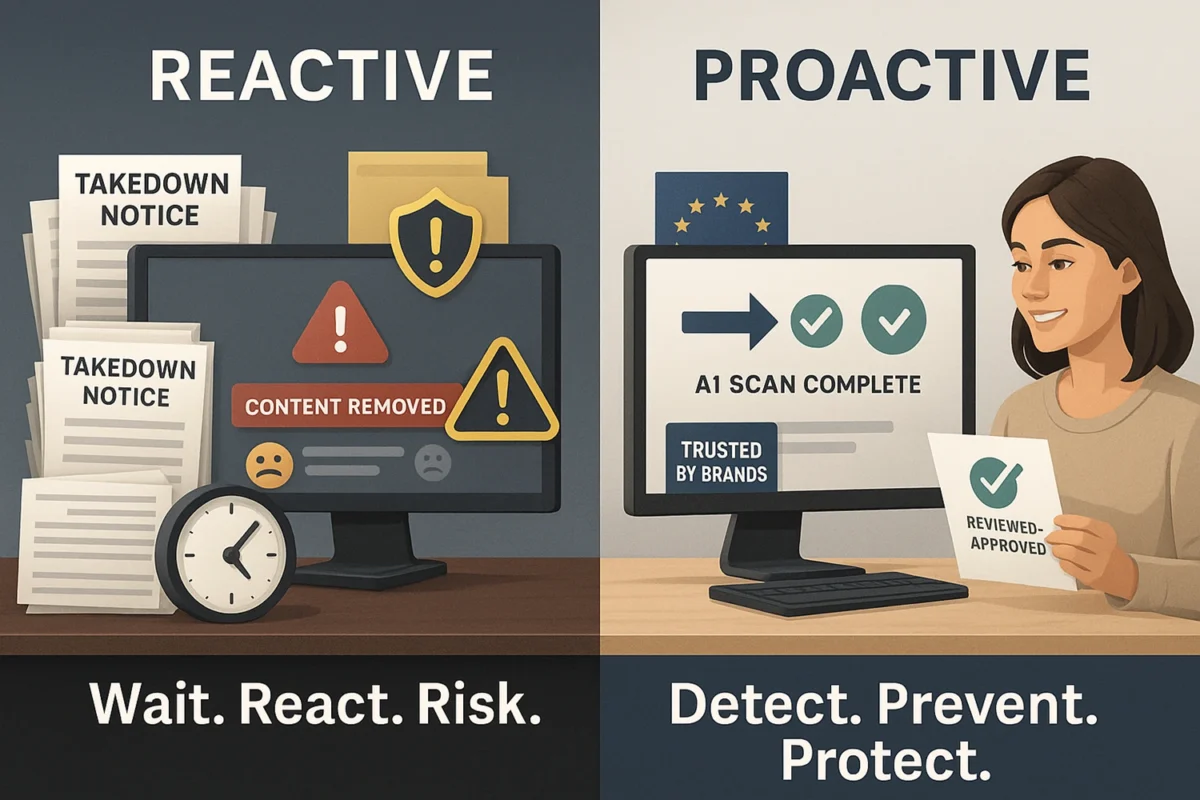POD And IP: Why Platforms Can’t Rely On Takedowns Alone
The print-on-demand (POD) industry has revolutionized e-commerce by empowering creators to launch products with just a few clicks. But with this low barrier to entry comes a high risk: IP infringement.
For years, platforms have relied on reactive takedown systems to stay compliant. But as courts, brands, and regulators tighten expectations, the “wait-and-see” approach is no longer enough.
If you’re a POD platform or marketplace, here’s why you can’t rely on takedowns alone—and what a modern IP compliance strategy looks like.
1. The Speed of POD Makes Legal Exposure Immediate
Unlike traditional marketplaces, POD platforms may handle both content and product fulfillment. That means a copyright-infringing design can go from upload to printed product to shipped to a customer within hours.
By the time a brand or rights holder files a DMCA takedown, the damage is already done—and the platform may be commercially complicit.
Key risk: Courts have held that platforms involved in production and distribution of infringing goods (like Redbubble, Printful) can’t hide behind “just a marketplace” defenses.
2. Takedowns Are Too Slow for Modern Enforcement
DMCA takedowns were built for blogs and forums, not real-time commerce. The process is:
- Reactive, not preventive
- Manual, not scalable
- Slow, in a fast-moving environment
If an infringing design is live for even 24 hours, it can rack up sales, customer reviews, ad dollars, and platform liability.
By the time legal notices roll in, you’re already exposed.
3. Most Infringement Is Intentional-And Repeatable
POD attracts creators—but also infringers. Many uploaders intentionally:
- Modify famous characters or logos
- Use keyword stuffing to evade detection
- Upload infringing variants across multiple listings or sellers
And if your platform doesn’t catch it the first time? They’ll do it again. A repeat infringer policy helps—but only if your system prevents uploads proactively, not just reacts after the fact.
4. Proactive Detection Is the New Standard
To keep up, platforms must shift to proactive IP enforcement. That means:
- Scanning content pre-upload or in real-time
- Using AI vision models that understand context, not just logos
- Flagging suspicious designs for moderator review or automated rejection
This is where VISUA’s Infringio comes in: a next-gen visual detection engine built to analyze meaning, not just matches. It can identify likely infringement—even when no logo or direct copy is visible.
5. Compliance = Brand Trust + Legal Protection
Regulators, payment processors, and rights holders are all watching. If you can’t show that you take IP seriously:
- You lose Safe Harbor protections
- You open yourself up to lawsuits
- You risk payment bans or ad suspensions
On the flip side, having proactive tools + transparent policies shows you’re doing your due diligence—and that makes all the difference in courtrooms and negotiations.
Don’t Wait for A Takedown. Prevent The Upload
If you’re running a POD or e-commerce platform, takedowns should be your last line of defense—not your first. Real compliance means:
- Preventing infringing content from ever going live
- Educating users before they upload
- Using context-aware AI like Infringio to reduce liability at scale
The future of IP compliance is proactive. The time to adapt is now.
Want to see how Infringio helps POD platforms detect IP issues before they go live? Book a demo with VISUA today.
Disclaimer: Not Legal Advice
This content is provided for informational purposes only and does not constitute legal or professional advice. The information reflects our understanding as of the date of publication and may not apply to every situation or jurisdiction. You should consult qualified legal counsel for advice tailored to your specific circumstances. Any actions taken based on this content are at your own risk. Neither VISUA nor its affiliates accept liability for any losses or damages arising from the use of this information.
Book A DemoRELATED
Redbubble, Teespring, and the Lessons of IP Enforcement Failures
Reading Time: 3 minutesPrint-on-demand (POD) platforms empower creators to design and sell products without holding inventory. But with that power…
BlogHow AI Is Changing the Game in IP Enforcement
Reading Time: 2 minutesIP enforcement used to be simple: But today’s infringement landscape – especially for POD and UGC-heavy platforms…
BlogThe Future of IP Compliance – Proactive vs. Reactive Models
Reading Time: 2 minutesFor years, most platforms treated IP compliance as a reactive function: But the market – and the…
Blog


